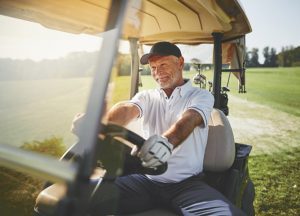 If you’re a heart patient, older than 50, or overweight, you might need to take special precautions in the heat, according to Gerald Fletcher, M.D., professor of medicine at the Mayo Clinic, in Jacksonville, Florida.
If you’re a heart patient, older than 50, or overweight, you might need to take special precautions in the heat, according to Gerald Fletcher, M.D., professor of medicine at the Mayo Clinic, in Jacksonville, Florida.
Check with your healthcare professional before starting an exercise routine if you are experiencing symptoms or have a specific medical question or chronic disease. Certain heart medications like beta blockers, ace receptor blockers, ace inhibitors, calcium channel blockers and diuretics (which deplete the body of sodium) can exaggerate the body’s response to heat, Fletcher said.
But Fletcher points out that it’s important to keep taking your medications —and taking them when you’re supposed to. Even if they’re not on medications, older people also need to take precautions in the heat.
“If you’re older than 50, you may not be aware that you’re thirsty,” Fletcher said. “If you’re going to be outside, it’s important to drink water even if you don’t think you need it.”
Tips for everyone
Think you’re ready to brave the heat? Watch the clock and buddy up, Fletcher said. It’s best to avoid the outdoors in the early afternoon (about noon to 3 p.m.) because the sun is usually at its strongest, putting you at higher risk for heat-related illnesses. If you can, exercise with a friend, because it’s safer — and more fun — to have someone at your side.
Here are some other tips:
Get off on the right foot. You probably sweat the most in your shoes, so choose well-ventilated shoes and look for socks that repel perspiration. Foot powders and antiperspirants can also help with sweat.
Dress for the heat. Wear lightweight, light-colored clothing in breathable fabrics such as cotton, or a synthetic fabric that repels sweat. Add a hat and/or sunglasses.
Drink up. Before you get started, apply a water-resistant sunscreen with at least SPF 15, and reapply it every two hours. Stay hydrated by drinking a few cups of water before, during and after your exercise. Avoid caffeinated or alcoholic beverages.
Take regular breaks. Find some shade or a cool place, stop for a few minutes, hydrate, and start again.
Whatever you do, don’t throw in the towel, Fletcher said. “Don’t NOT exercise — adapt!”
Symptoms of heat exhaustion:
. Headaches
. Cool, moist skin
. Dizziness and light-headedness
. Weakness
. Nausea and vomiting
. Dark urine
If you experience these symptoms, move to a cooler place, stop exercising and cool down immediately by using cool wet cloths, compresses, and fanning. You may need to seek medical attention.
Symptoms of heat stroke:
. Fever (temperature above 104 °F)
. Irrational behavior
. Extreme confusion
. Dry, hot, and red skin
. Rapid, shallow breathing
. Rapid, weak pulse
. Seizures
. Unconsciousness
If you experience these symptoms, seek medical attention right away. Call 911 or the local emergency number right away.
At Cardiac Care Group, they take your symptoms seriously and are prepared to see you and to discuss your conditions. They specialize in providing a wide range of services that focus on the prevention, prompt diagnosis and state-of-the-art treatment of cardiovascular disease.
Dr. Joseph Freedman MD, MBA brings many years of experience as a cutting edge cardiologist specializing in the prevention, diagnosis, and treatment of all cardiac disease. He trained at the prestigious Cleveland Clinic, continually ranked #1 in Cardiovascular Care, where he focused on cardiac imaging. He achieved five board certifications in Internal Medicine, Cardiology, Comprehensive Adult ECHO, Nuclear Cardiology and Cardiac CT. During his tenure as the lead noninvasive cardiologist at Florida Medical Center in Ft. Lauderdale, he helped lead the hospital to achieve Level 5 chest pain certification, the highest designation of cardiac excellence.
He has spoken on national health care radio programs and has appeared on local news, highlighting the latest in cardiovascular care. Dr. Freedman prides himself on being an advocate for the patient. Every patient is unique, and he works carefully with leading local and national experts to make sure patients receive the best specialty procedural care possible for that particular case. Dr. Freedman has done research in cardiac MRI studies of the heart, in nuclear scanning, and has participated in the research trials of several leading cholesterol-lowering drugs. Dr. Freedman also has extensive experience in pulmonary hypertension and ran a large clinic in Broward County for these specific and often undiagnosed patients. Dr. Freedman speaks Spanish as well.
Cardiac Care Group
3208 Chiquita Blvd S., Suite 110
Cape Coral, FL 33914
(239) 574-8463
www.flccg.com
This information is for educational purposes only and is not intended to replace the advice of your doctor or health care provider. We encourage you to discuss with your doctor any questions or concerns you may have.










